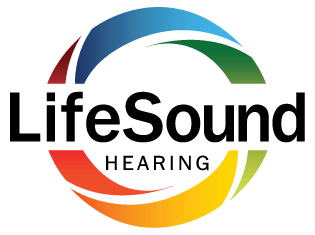
You’re starving so you go to your fridge for a snack. Are you craving a salty treat… maybe some crackers? Potato chips sound good! There’s a leftover piece of cheesecake that would be delightful.
Actually, maybe you should just have a banana. After all, a banana is a much healthier option.
When it comes to the human body, everything is connected. So maybe it’s not a big surprise that what you eat can affect your ears. For example, too much sodium can raise blood pressure and could make tinnitus symptoms more noticeable. Research is adding weight to this notion, indicating that what you eat could have a direct influence on the manifestation of tinnitus symptoms.
Your diet and tinnitus
The official journal of the American Auditory Society, called Ear and Hearing, published research that observed the diets of a wide variety of people. Your risk of certain inner ear disorders, including tinnitus, increases or diminishes based on what you eat. And your chance of getting tinnitus increases, especially when your diet is lacking vitamin B12.
Vitamin B12 wasn’t the only nutrient that was associated with tinnitus symptoms. Your risk of getting tinnitus also increases if your diet is too rich in fat, calcium, and iron.
And there’s more. This research also showed that tinnitus symptoms can also be influenced by dietary patterns. In particular, diets high in protein appeared to reduce the likelihood of developing tinnitus. Needless to say, low-fat diets that were high in fruits, vegetables, and meats also seemed fairly good for your ears.
So should you make a change to your diet?
You would need to have an extremely deficient diet in order for that to be the cause, so modifying your diet alone likely won’t have a substantial effect. Other problems, such as exposure to loud noise, are much more likely to affect your hearing. Having said that, you should try to sustain a healthy diet for your general health.
There are several substantive and practical insights that we can get from this research:
- Get your hearing tested professionally: Come in and get your hearing tested if you’re experiencing hearing loss or tinnitus. We will help you figure out what type and level of hearing loss you’re coping with and how to best treat it.
- Protecting your ears takes many approaches: The danger of tinnitus and other inner ear disorders can be reduced by eating a healthy diet, according to this research. That doesn’t mean you’re no longer at risk. It just gives you better odds of preventing ear conditions. So if you want to lower the risk of tinnitus even further, you’ll have to take a comprehensive approach to safeguard your ears. This will often mean protecting your ears from loud noise by using earplugs or earmuffs
- Quantities vary: Sure, you require a certain amount of vitamin B12 (for instance) to keep your hearing healthy. You will be more vulnerable to tinnitus if you get less than this. But getting more vitamin B12 won’t necessarily make your ears healthier. Always consult your doctor about any supplements you use because getting too little or too much of these elements can be unhealthy.
- Nutrients are essential: Your diet will have an effect on your hearing health. Clearly, your hearing will be benefited by a healthy diet. So it’s not difficult to see how issues such as tinnitus can be an outcome of poor nutrition. And with individuals who are lacking the vital vitamins, minerals, and nutrients they need, this is especially true.
Research is one thing, real life is another
And, lastly, it’s significant to note that, while this research is impressive and fascinating, it isn’t the last word on the matter. More research must be carried out on this topic to confirm these conclusions, or to improve them, or challenge them. How much of this relationship is causal and how much is correlational is still something that needs to be determined, for instance.
So we’re not suggesting that tinnitus can be prevented by a B12 shot alone. It may mean taking a multi-faceted approach in order to avoid tinnitus in the first place. Diet can be one of those facets, sure (eat that banana). But it’s crucial that you don’t forget about proven methods, and that you pay attention to safeguarding your hearing health as much as you can.
We can help, so if you’re experiencing hearing issues, call us.
[blogcta]
References
https://www.mayoclinic.org/diseases-conditions/tinnitus/symptoms-causes
https://journals.lww.com/ear-hearing/Fulltext/2020/03000/Relationship_Between_Diet,_Tinnitus,_and_Hearing.8.aspx
